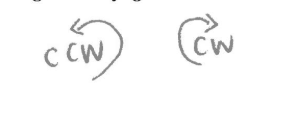
In an hour, I'll meet my students in Math Explorations, a course we teach in an inquiry-based format. I LOVE this class! But like all teachers, I'm feeling the usual first-day jitters. To calm myself, I'm re-reading "The art of asking good questions": artofmathematics.org/blogs/vecke/th…
The course materials are available at the website for the wonderful "Discovering the Art of Mathematics" project artofmathematics.org. They offer 11 free books on fascinating topics like math and music, patterns, dance, games and puzzles, knots, infinity, etc. A real feast!
The website also includes videos of inquiry-based classes in action, reflections by teachers and students, and lots of pedagogical ideas. My own reflections from the first time I taught the course are at artofmathematics.org/blogs/cvonrene… and artofmathematics.org/blogs/cvonrene…
This year, our Math Explorations course is going to be unusual, because of the challenges and opportunities of trying to inquiry-based learning ONLINE. For thoughts and advice on that, see
artofmathematics.org/blogs/vecke/te…
artofmathematics.org/blogs/cvonrene…
artofmathematics.org/blogs/vecke/te…
artofmathematics.org/blogs/cvonrene…
And to everyone on their first day of class at @Cornell, Go Big Red!
https://twitter.com/Cornell/status/1358781909623590917?s=20
In my Math Explorations class today, I had the students do a "gallery walk" (using Google Jamboard frames as virtual whiteboards). It occurred to me that virtual whiteboards could have an advantage over real ones: students can answer questions by posting memes. And they did! 



• • •
Missing some Tweet in this thread? You can try to
force a refresh












